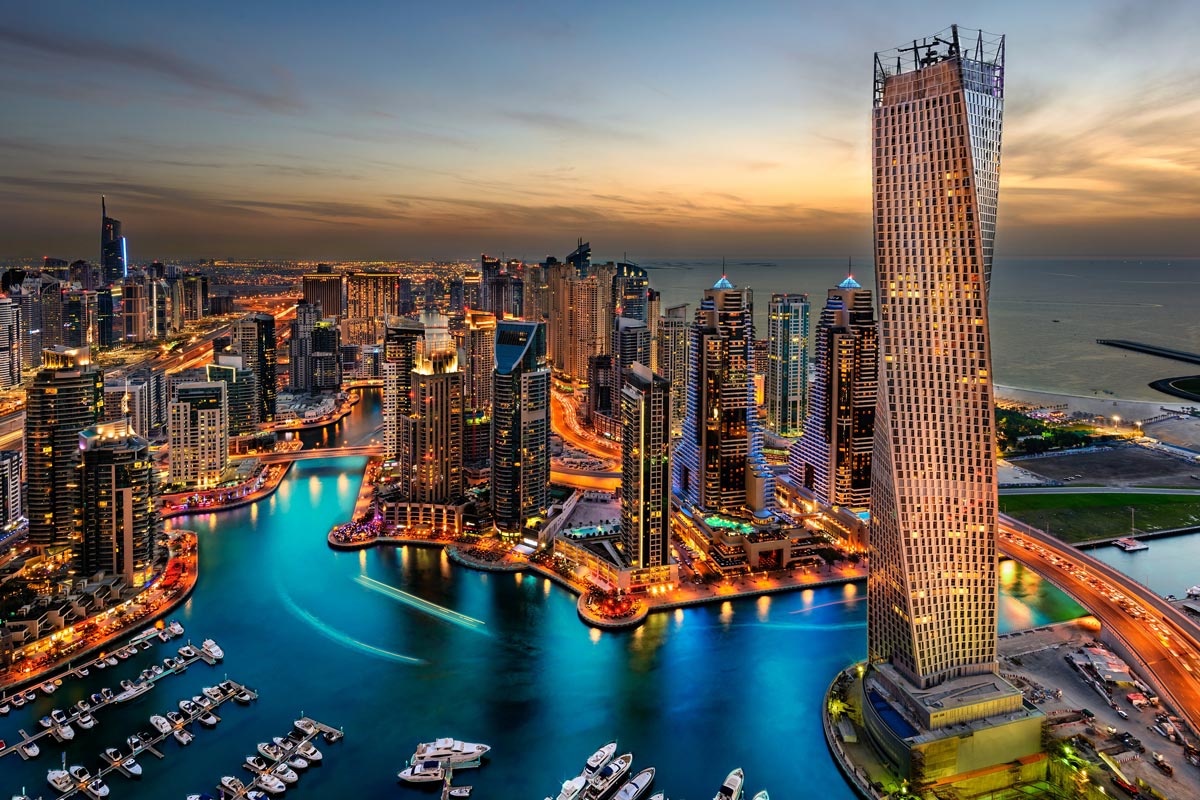Dubai, the glittering gem of the United Arab Emirates, has long been synonymous with luxurious living, world-class architecture, and a thriving real estate market. Over the years, this desert city has attracted investors, expatriates, and tourists from all corners of the globe. As we step into 2023, it’s imperative to take a close look at Dubai’s real estate market to understand its current state, recent trends, property values, and what the future may hold for investors and homebuyers.
The Current State of Dubai’s Real Estate Market
In recent years, Dubai’s real estate market has experienced a mix of ups and downs. After a period of rapid growth leading up to the 2008 financial crisis, the market faced a significant downturn in the years that followed. This period was characterized by oversupply and subsequent falling property values. However, Dubai’s government took proactive measures to stabilize the market, including the introduction of the Real Estate Regulatory Agency (RERA) and stricter regulations. In recent years, Dubai’s real estate market has been on the road to recovery, with several notable trends and key indicators that are worth examining:
1. Increased Demand for Affordable Housing:

One of the most significant shifts in the market is the increasing demand for affordable housing options. Dubai has recognized the need to cater to a diverse range of residents, not just high-net-worth individuals. This has led to the development of more budget-friendly properties, often in suburban areas, to accommodate a broader spectrum of buyers and tenants.
2. Sustainable and Green Building Initiatives:
Sustainability has become a buzzword in Dubai’s real estate sector. Developers have embraced eco-friendly construction practices and incorporated green technologies into their projects. This not only appeals to environmentally conscious buyers but also aligns with the UAE’s long-term sustainability goals.
3. Expo 2020 Boost:
Dubai hosted the Expo 2020, which had a substantial positive impact on the real estate market. It stimulated demand for both residential and commercial properties as businesses sought prime locations to establish themselves in preparation for the global event.
4. Rent-to-Own Schemes:
To further entice potential homebuyers, rent-to-own schemes have gained popularity in Dubai. These programs allow tenants to gradually transition into homeownership by allocating a portion of their rent payments toward the property’s purchase. 
Property Values and Trends
In terms of property values, Dubai’s real estate market has experienced a stabilization and modest increase in recent years. The average property values in prime areas like Downtown Dubai, the Palm Jumeirah, and Emirates Hills have seen a slight uptick, indicating renewed investor confidence. However, it’s essential to note that there are still variations in different segments of the market.
While luxury properties in prime locations have recovered well, there remains a certain level of oversupply in the mid-tier and lower-end segments. As a result, property values in these areas have remained relatively flat, with potential for growth in the future as the market continues to adapt to changing demand dynamics.
Rental yields in Dubai have historically been attractive, making it a popular choice for real estate investors. The city’s strategic location, business-friendly environment, and tax advantages continue to be strong selling points for those seeking rental income.
Future Projections and Considerations
The future of Dubai’s real estate market holds promise, with several key considerations and projections to keep in mind:
1. Expo 2020 Legacy:
The aftermath of Expo 2020 is expected to have a lasting positive impact on Dubai’s real estate market. With increased tourism and business activities, demand for properties in the city is likely to grow.
2. Regulatory Stability:
Dubai’s real estate market benefits from a stable regulatory environment, with RERA ensuring transparency and accountability. This stability is expected to attract more international investors in the years to come.
3. Infrastructure Development:
Dubai continues to invest in infrastructure development, such as new metro lines and airports, further enhancing its appeal to residents and businesses. 
4. Economic Diversification:
The UAE’s efforts to diversify its economy, reducing its reliance on oil, have created new sectors and job opportunities. This, in turn, has a positive impact on the real estate market.
5. Affordable Housing Initiatives:
The government’s focus on affordable housing will make Dubai more accessible to a broader range of homebuyers and tenants, potentially driving market growth in this segment.
Dubai’s real estate market in 2023 shows signs of stability and potential growth, with a focus on catering to a broader demographic and adopting sustainable practices. As the city continues to evolve, it remains an attractive destination for real estate investment. However, as with any market, potential investors and homebuyers should conduct thorough research, stay informed about market dynamics, and seek professional advice to make well-informed decisions in this ever-evolving market.

